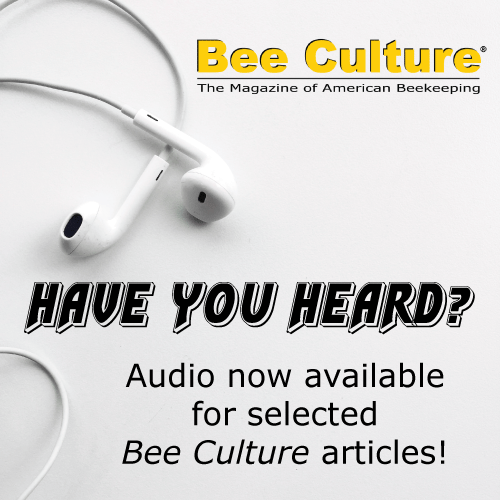By: Tanya Richardson & Leonora Adamchuk
The UN created World Bee Day in 2018 to highlight the importance of pollinators and the threats that they face. This year Ukraine’s bees and beekeepers face a new kind of threat: a war of aggression waged by the Russian Federation. The war has not only destroyed apiaries, forced tens of thousands of beekeepers to abandon their homes and cut other beekeepers off from their bee yards, but has also disrupted markets, pollination, honey bee research and the planting of nectar-bearing crops. Instead of “celebrating the diversity of bees and beekeeping systems” – the FAO’s 2022 Bee Day theme – Ukrainian beekeepers, breeders, scientists, ministry officials and an apitherapist gathered on Zoom for a meetup called “Beekeeping and War: Challenges and Ways to Overcome Them.” The event was organized by the Prokopovych Beekeeping Institute (PBI) (The official name is National Scientific Centre “Prokopovych Institute of Beekeeping.”) and the NGO Foundation of Women Beekeepers (FWB) and was hosted by Leonora Adamchuk, associate professor at National University of Life and Environmental Sciences of Ukraine and cofounder of FWB. First Deputy Minister of the Ministry of Agrarian Policy and Food, Taras Vysotsky, opened the event and assured listeners of his support. Presenters’ topics ranged from monitoring war-created toxins, to attempts to keep research going, to advice on war-time apitherapy. All were united by a concern about the war’s impact on the livelihoods of Ukraine’s estimated 46 thousand officially registered beekeepers, and revenues from the production of honey – some 70,000 tons of which are exported each year. Tanya listened in as an anthropologist who studies the history of breeding and conserving aboriginal honey bee breeds in Ukraine.
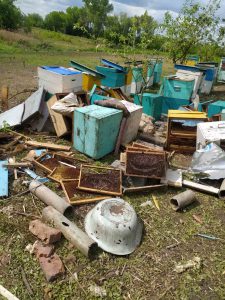
Photo 1. Destroyed apiary in the village of Mospanove in the Kharkiv Region.
The meet-up’s first half featured presentations by the director of PBI, the head of Ukraine’s Beekeeping Association and beekeepers who had to flee and those who have been able to stay. Volodymyr Postoienko, director of the PBI was blunt in his introductory remarks: “In recent years, we have had to deal with different challenges such as the pandemic and now Russian fascists. They destroy infrastructure, civilians and agrarian livelihoods. Their main goal is to pollute the environment… they destroy our productive resources to cause famine here and in the world.” His colleague from the National Academy of Agrarian Sciences, Professor Ostap Zhukorsky, elaborated. Previously he and others had studied the impacts pesticides and herbicides on bees partly in connection with the rise in incidents of mass honey bee die-offs and conflicts they had provoked between farmers and beekeepers. However, missile strikes on industrial and civilian infrastructure have released new kinds of toxins into land, air and water on an entirely different scale. Airborne toxins land on bees. They also enter ground water, are ingested by the bees when they consume plants’ nectar and could accumulate in wax, honey and other bee products. Toxins’ presence may make bee products unsafe to consume therefore ineligible for export to the European Union, one of Ukraine’s largest markets. Professor Zhukorsky stressed the urgency of monitoring the movement of pollutants through the environment and implored audience members and other farmers to provide samples for testing before consuming or selling them.
Other talks outlined the ways the war has affected beekeepers, most of whom have 50 or fewer hives. Volodymyr Stretovych, Head of Ukraine’s Beekeeping Association, described how fuel shortages, check points and other military restrictions on mobility have curtailed beekeepers’ ability to transport apiaries to nectar flows in areas adjacent to battle zones. Leonora Adamchuk talked about the FWB’s activities before the war, including its recruitment of 60 women beekeepers from 18 different administrative regions. She also presented data from her survey of women beekeepers throughout Ukraine about how the war has affected them. Seventeen percent had lost apiaries and 17% had left the country. One of these was Iryna Vasylieva, a beekeeper from the town of Svatove in the Luhansk Region. In her talk, Iryna described how before the invasion she had expanded her apiary to 50 hives, begun developing agrotourism with a grant from the United Nations Development Program and been selected to be part of a network of demonstration farms. However, when fields around her town were mined and bombardment began after February 24, she decided to leave for Denmark. FWB survey data showed that an additional 20% of women beekeepers were forced to leave their homes while 66% of women beekeepers indicated that their business had been affected in a significant way.
While other FWB members remained at home they dramatically reoriented their activities. After a week of “tears and denial,” founder of the Power of Nature Apiary in the town of Kremenchuk, Poltava Oblast Maria Moseichuk, established a volunteer group which set up a shelter and cafeteria for internally displaced people. She connected with humanitarian networks and helped distribute food and medicines to her shelter and to two orphanages. Like many other beekeepers she has donated honey, money and other bee products to the army. She also teaches displaced children about bees and candle-making and manages her apiary which is located 20 km from her home. Nowadays, however, due to fuel shortages stemming from missile strikes on oil terminals, Maria bikes rather than drives. She wrapped up her presentation jokingly on an optimistic note as she described her efforts to make her apiary organic by creating organic fertilizer: “I think there will be a good harvest thanks to my bees and my compost.”
Scientists from different backgrounds – biology, chemistry and agrarian sciences – also play crucial and varied roles in supporting Ukraine’s beekeeping industry. The second half of the meet-up featured presentations by specialists from Kharkiv, Kyiv, Odesa, Poltava and Transcarpathia who talked about the challenges of diversifying markets, keeping breeding programs going, monitoring apiaries in a conflict zone and pursuing their research projects. Several presenters spoke about breeding and researching Ukraine’s aboriginal honey bee breeds – the Carpathian (Apis mellifera carnica var. ukrainica carpatica), the Ukrainian Steppe (Apis mellifera sossimai) and the Polissian (Apis mellifera var. polissica) – which is one of the key tasks of the PBI. Viktor Papp of the PBI’s Carpathian Bee Department explained that Transcarpathian-based honey bee researchers have been able to use isolated mating areas to carry out selection work because missile strikes are infrequent. By contrast, because of military prohibitions on using watercraft on the Dnipro River, Hanna Hrechka and Tetiana Senchuk of the Ukrainian Steppe Bee Department in Hadiach, Poltava, have been unable to continue their selection work because they can’t access the isolated mating area on an island in the Dnipro.
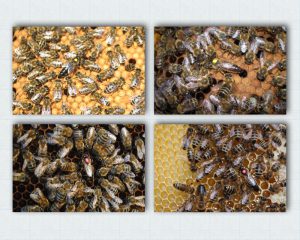
Photo 2. Four types of Carpathian honey bees from left to right, top to bottom: Vuchkove, Hoverela, Rakhiv, Sinivir
Genetic research about Ukrainian Steppe bees has also been disrupted by war because of the closure of Ukraine’s airspace. Professor Ihor Kostikov of Kyiv National University and the Prokopovych Institute explained that whereas the genome of Carpathian bees has been fully sequenced, the Ukrainian Steppe bee’s has not. Without this sequencing the question of whether it is a distinct subspecies (Apis mellifera sossimai) or a population of the Apis mellifera macedonica subspecies cannot be fully answered. Professor Kostikov had been about to send the sample abroad for sequencing when the war began. Uncertainty about this bee’s taxonomic identity means that some beekeepers – particularly those who import other kinds of bees such as Carniolan or Buckfast bees – can dispute the value of conserving Ukrainian Steppe bees. Nevertheless, Ihor Kostikov responded with an emphatic “yes” to Leonora Adamchuk’s question about whether it is important to continue conserving them despite not definitively knowing their identity. Honey bees’ extreme polyandry and aerial mating practices mean hybridization happens easily and is difficult for beekeepers to fully control. Kostikov reminded the audience that over the long term, hybridization leads to the loss of the rich diversity in sex alleles of a particular population and eventually their existence as a distinct population. Data from genetic sequencing can help provide additional arguments for conserving Ukrainian Steppe bees and enforcing regulation regarding their use in particular territories. Leonora Adamchuk noted that Polissian bees (Apis mellifera var. polissica) have survived only in the Chornobyl Exclusion Zone and have not been studied at all.
While Ukrainian and foreign observers are well-informed about the size of Ukrainian honey exports and their contribution to the Ukrainian economy, the significance of the international export of queens to the European Union, Middle East, Central Asia, Russia and Canada is less well-known. Stepan Kerek, head of the Carpathian Department of the PBI, explained that until February 24, Russia was one of the largest export markets for Carpathian queens and bee packages while bees bound for Central Asia have typically transited through Moscow. He reminded the audience that the export of queens and packages from Transcarpathia to Russia began in the 1970s with the development of a queen breeding program and that the region does not produce much honey. The loss of Russian and Central Asian markets has therefore been a shock to the region’s 1,036 beekeepers. Stepan argued that it is imperative that the Carpathian breeders undertake a “derussification” of their trade and proposed that Canada could replace Russia. This is not only because Canadian demand for queens and packages is large, but also because in 2020 Canada approved the import of Ukrainian queens. Ukrainian breeders have had success in exporting queens to Canada and hope that the packages could be approved soon.
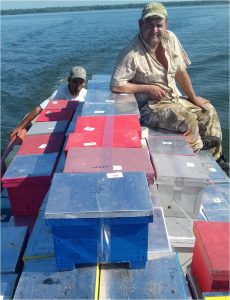
Photo 3. Trip to an isolated mating area on an island in the Dnipro River
Odesan Agrarian University researchers Halyna Skrypka (in Odesa) and Olena Ievtushenko (in Kharkiv) both had their work interrupted but have nevertheless continued to gather data and envision future research. In spite of limitations that constant bombardment and the occupation of part of Kharkiv Region imposed on her research, Olena presented data about the scale of destruction and raised questions for monitoring and research (Olena heads the bee diseases sector of her university’s Experimental and Clinical Veterinary Medicine Research Centre). Because up to 30% of Ukrainian beekeepers don’t register their apiaries, it is difficult to provide precise data about the loss of hives; at the same time beekeepers who lost apiaries “may not be emotionally or practically able to get in contact.” While showing a picture of destroyed hives, Olena explained that in Kharkiv, 76.45% of apiaries suffered losses, a figure that included colonies, equipment and storage facilities. Olena proposed that once the war is over and the territory de-occupied, researchers should focus on two issues: first, compare hives that are managed by a beekeeper with those that have been abandoned; second, compare bee colonies that have experience shock waves from explosions with those who have not.
Olena’s Odesan colleague Halyna, who had no access to her lab for two months, spoke about “the everyday life of a scientist during war” and how she sought to “do her part.” When her lab closed she decided to continue her investigations at home using a 1935 microscope inherited from her great-grandmother who had taught at Odesa’s Medical University. A package of honey sent by a beekeeper in Ternopil oblast just prior to the invasion became her focus. Although she was unable to perform a full analysis of the samples, she was able to identify pollen types in the honey with the help of a pollen atlas. Her lab has recently reopened but resources are extremely limited. Nevertheless, she said, “We should do the work that we love, that inspires us and that calms us down. Scientists should do their research; science is the future and the future depends on us.”
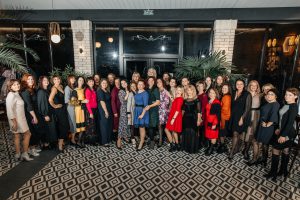
Photo 4. Forum of the Federation of Women Beekeepers Fall 2021
Apitherapist and psychologist Svitlana Volynets addressed her fellow beekeepers as human beings with bodies and souls in a presentation about the healing properties of propolis and other bee products. She listed the types of emotions that accompany war-induced stress – alarm, shame and sorrow – and the biological and psychological effects of living with extreme stress for more than 28 days. She reminded listeners that this kind of stress elevates cortisol levels which removes calcium from bones, undercuts protein synthesis, affects the release of insulin, undermines a person’s sense of their own basic need to sleep and eat and disrupts the release of hormones that enable a person to feel joy. Svitlana urged her colleagues to consume propolis-based products to reduce depression, and royal jelly – which is rich in B6, B12, and folic acid – to lower cortisol levels. She told them to practice another tried and true form of Ukrainian psychotherapy – singing. “By looking after yourselves,” she said, “you will be better equipped to respond to unpredictable situations, better able to help others in need and will avoid the feeling of victimhood.”
Attendees filled the Zoom chat with greetings, suggestions, words of support and expressions of gratitude to the organizers for creating an opportunity to gather. The 2022 FOA World Bee Day presentation which some Ukrainians joined afterwards celebrated the diversity of bees and beekeeping systems with beautiful videos and slide presentations from around the world. In Ukraine, World Bee Day enabled Ukrainian beekeepers and researchers to gather together to affirm their ability to survive, resolve problems, envision a future and defy the Russian military’s campaign to destroy them and their land. Over and over again participants addressed each other with versions of Leonora Adamchuk’s words: “We are on our land; we will be victorious.”
Tanya Richardson is Associate Professor in the Anthropology Program and the Department of Global Studies at Wilfrid Laurier University, Canada. Email: trichardson@wlu.ca
Leonora Adamchuk is Associate Professor in the Department of Standardization and Certification of Agricultural Products at the National University of Life and Environmental Sciences, Ukraine. Email: leonora.adamchuk@gmail.com


